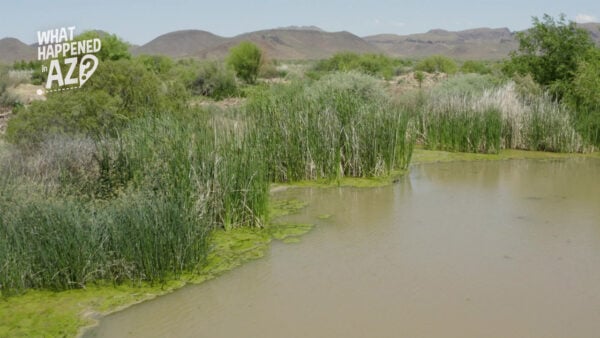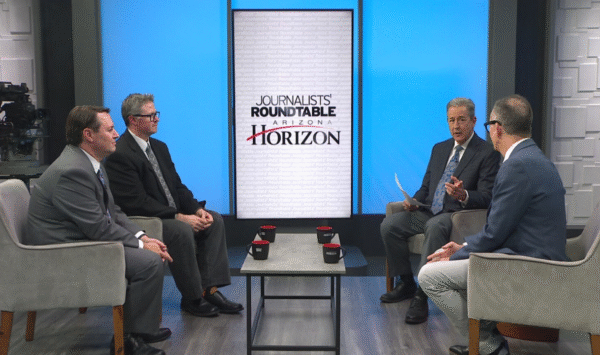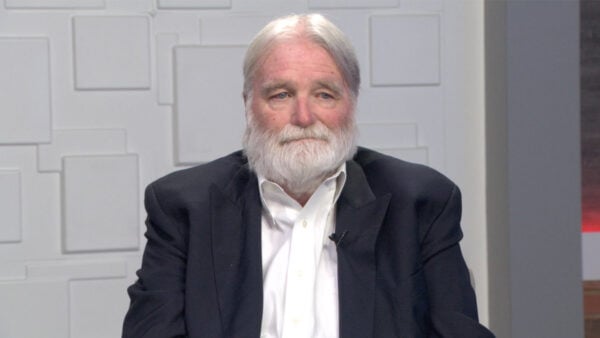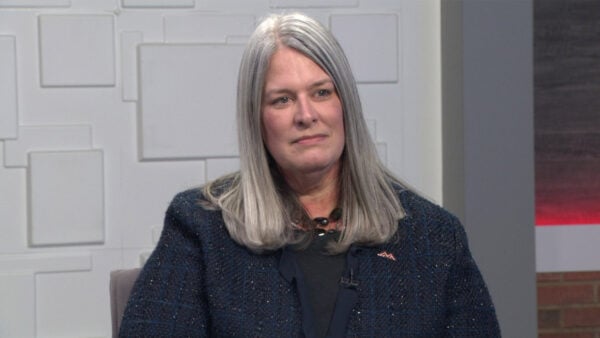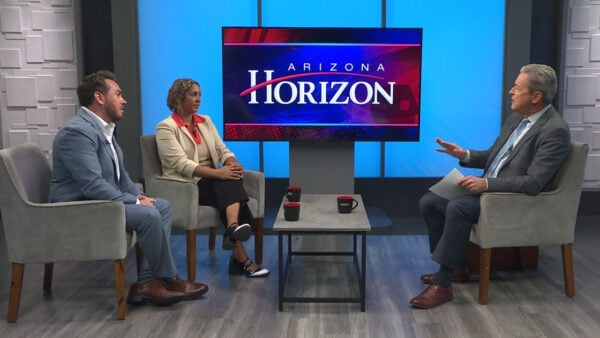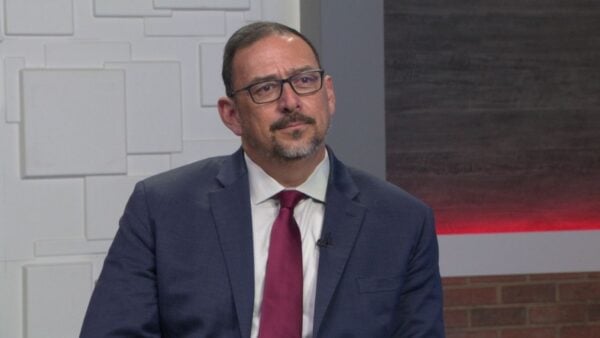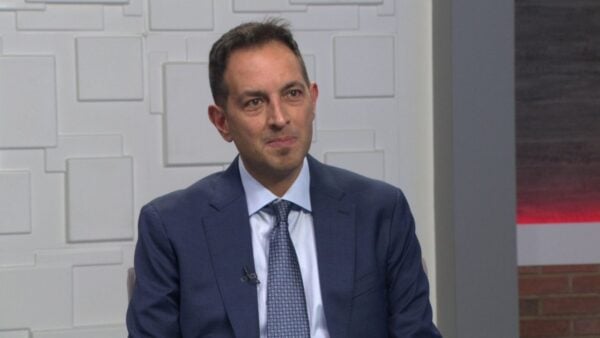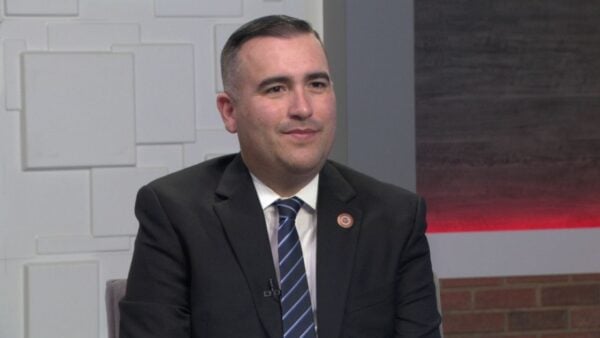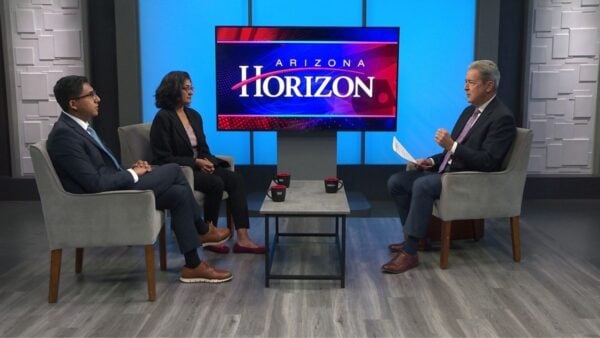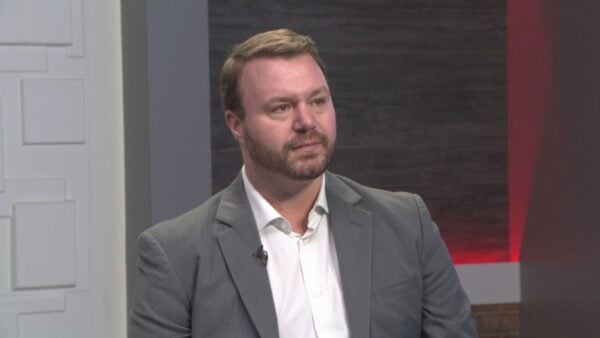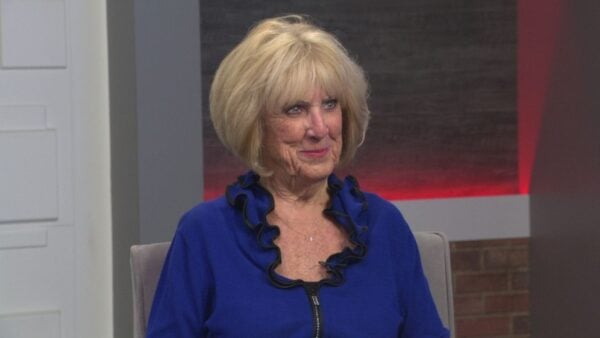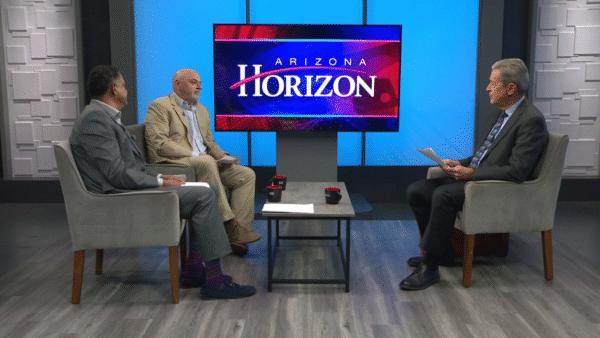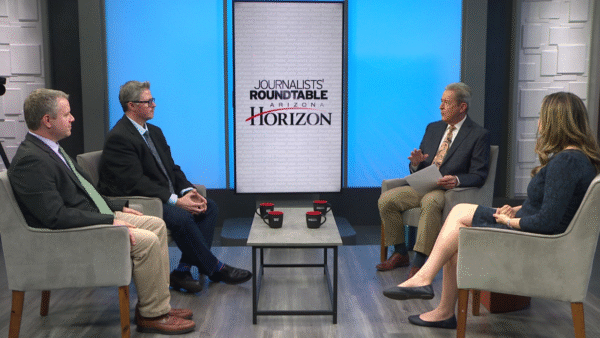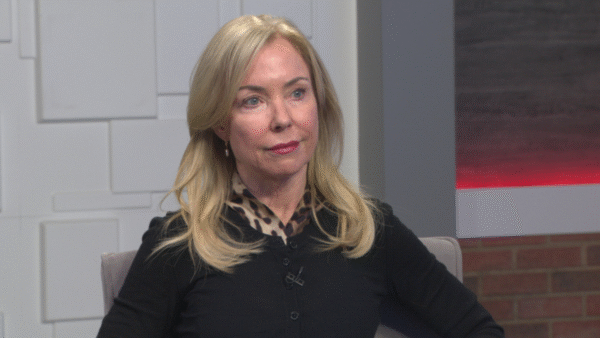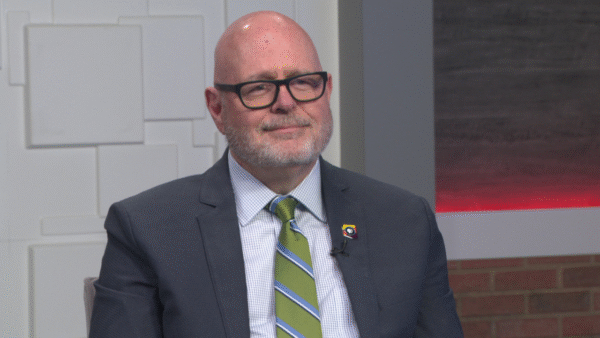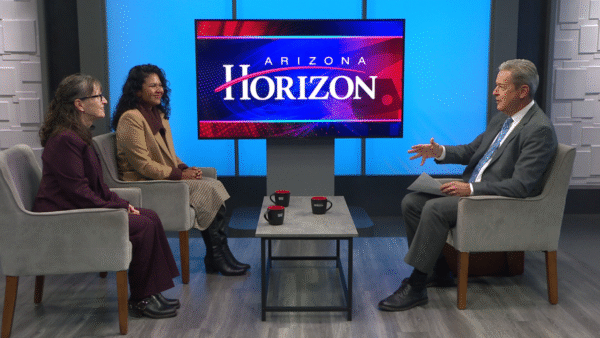Arizona State University and the Santa Fe Institute have joined forces and recently launched the ASU-SFI Center for Biosocial Complex Systems. The new center could offer ideas and solutions in areas such as innovation and urbanization as cities grow. Manfred Laubichler, one of the directors of the new center, will talk about the organization.
Ted Simons: ASU recently announce add joint venture with the Santa Fe institute for a new center for biosocial complex systems designed to offer among other things ideas and solutions to help develop and maintain urbanization. Here with more is the center's co-director, Manfred Laubichler. Good to see you. It sounds complicated but I don't think it is. Define a biosocial complex system.
Manfred Laubichler: Well, most systems that we look at in science we tend to look at them from different perspectives. That's why we have the idea that they are biological systems, social systems and they have nothing to do with each other. But of course all the systems that really affect us are tightly interconnected. So take a city, for instance, you can look at a city as a social system, as an economic system, but a city takes up space. It is its own environment. It has a large footprint that goes way beyond the boundaries of the cities. So taking all those perspectives together you end up with a complex biosocial system. Those are the systems we want to study.
Ted Simons: Is it to better understand that interconnectedness?
Manfred Laubichler: Better understand interconnectedness and which is necessary if you want to develop solutions to any of the real world problems that we have. I think everybody living in Phoenix or in the area knows that our city is such an urban environment produces a lot of problems. Many of them actually are unintended consequences of previous actions. That's what they will focus on.
Ted Simons: I notice in reading this there was an example in Europe regarding saving water, I think in Germany. All of a sudden they saved so much water it started flooding in Berlin.
Manfred Laubichler: That's a very ironic story, isn't it? We have all the best intentions to protect our resources. Saving water becomes of course a very good thing to do. So with German efficiency they did it. So toilets use less water. People are very conscious about it. So as a matter of fact over the last roughly 30 years the city of Berlin despite its increase in population uses about a third less water than before. Now, nobody thought about that a lot of the water they were using was ground water they pumped up. So as a consequence, basements are beginning to flood. Big construction sites in Berlin are basically lakes. They had to develop a whole new way of pouring concrete under water for the foundations and then to pump out the water. You see how those technical solutions to problems that we generated because of our actions.
Ted Simons: So with this new center you look at urban areas, Phoenix, Berlin, all points in between, say decision making process, you may have done it this way, here's a better idea to decide?
Manfred Laubichler: That would be a desirable outcome. What we are trying to understand for instance is how do we basically treat those different systems when they grow in size or shrink. So often we have an understanding of a system at a scale, but the solution falls apart if the system grows bigger. We can't transplant it from one system to another so those issues of scaling are extremely important. It's not just growth but you look at Detroit and you have the opposite. A city shrinks. How can we understand and manage this process?
Ted Simons: Interesting. Of course with Arizona and with Detroit you can talk about geography. It makes a difference.
Manfred Laubichler: Absolutely. The larger eco-systems, all those areas need to be considered as well.
Ted Simons: As far as the Santa Fe institute, was the Santa Fe institute and why did they decide to collaborate?
Manfred Laubichler: It's basically a very small think tank. At launch ceremony ten days ago Michael Crowe referred to as the intellectual descent and of Plato' academy. It's a small place. Small resident -- external faculty of professors and it has been at the forefront of studying complex systems and developing the theoretical foundations for that. That in a way matches very well with the orientation that we try to develop here at ASU under Michael's leadership to break down the disciplinary boundaries some of the it was a logical way of pairing up those two institutions and to do it in a way that creates a lot of synergies. That's what we are trying to do with this collaboration.
Ted Simons: Before you go, something like disease, health care delivery when a disease hits in an urban environment.
Manfred Laubichler: Those are the themes, yes. Take ebola. We thought we understood it as a very deadly disease but not one to worry too much about because it usually was the outbreaks were in isolated, small areas. Now once ebola entered a completely different system, urban systems in western Africa, we see that we are not at all prepared to deal with this. That's another one of the questions we want to study.
Ted Simons: Very interesting stuff. Good luck. We hope to hear about some of these ideas coming out of the center.
Manfred Laubichler: You will.
Ted Simons: Good to have you here.
Manfred Laubichler: Thank you.
Manfred Laubichler:Director, ASU-SFI Center for Biosocial Complex Systems;

